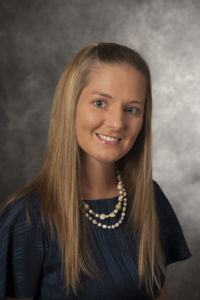SMU Researcher: The Key To Algebra Success? Make It Personal
“Train A leaves the station at 10 a.m. An hour later train B leaves the same station on a parallel track . . .”
The dreaded train question still stumps test-takers, ranging from eighth-graders to those preparing for graduate school exams, but an SMU math researcher insists there are better ways to teach algebra.

Candace Walkington has received a three-year $1 million grant from the National Science Foundation to develop and test strategies to engage students in algebra problem-solving, SMU announced.
“Algebra is the relationship between quantities,” said Walkington, an associate professor of teaching and learning at SMU’s Simmons School of Education and Human Development.
“Students use algebra all the time – when they calculate sports statistics, when they compare their social media accounts. They just don’t realize it.”
Her research will explore the value of giving students algebra problems that relate to their career interests, giving them opportunities to create their own problems, and using problem-solving to develop an interest in STEM careers.
The grant will fund further development of an existing online tool, ASSISTments, which will enable students to solve or create algebra problems based on their interests.
Walkington will compare approaches to determine which problems help students understand algebra, increase their interest in algebra, and deepen their interest in STEM careers.
The grant builds on her prior research showing that students learn algebra better when it is connected to their everyday interests.
The number of students pursuing STEM degrees is growing by just 1 percent each year, according to the National Association of Manufacturers.
That will leave 2.5 million STEM and STEM-related jobs unfilled in 2018, according to the U.S. Bureau of Labor Statistics.
Finding ways to support diverse students in algebra is important for encouraging more women and under-represented minorities to pursue careers in STEM fields, she said.
Walkington is partnering with collaborators Matthew Bernacki at the University of North Carolina, Neil Heffernan at Worchester Polytechnic Institute, Harsha Perera at the University of Nevada, and Elizabeth Howell at North Central Texas College, a community college system.
“The college algebra failure rate is high,” she said. “Many students take the course over and over, and eventually give up, blocking them from pursuing STEM careers like nursing, computer programming, or medical technology. Connecting algebra to careers helps students understand why they need to learn algebra.”









